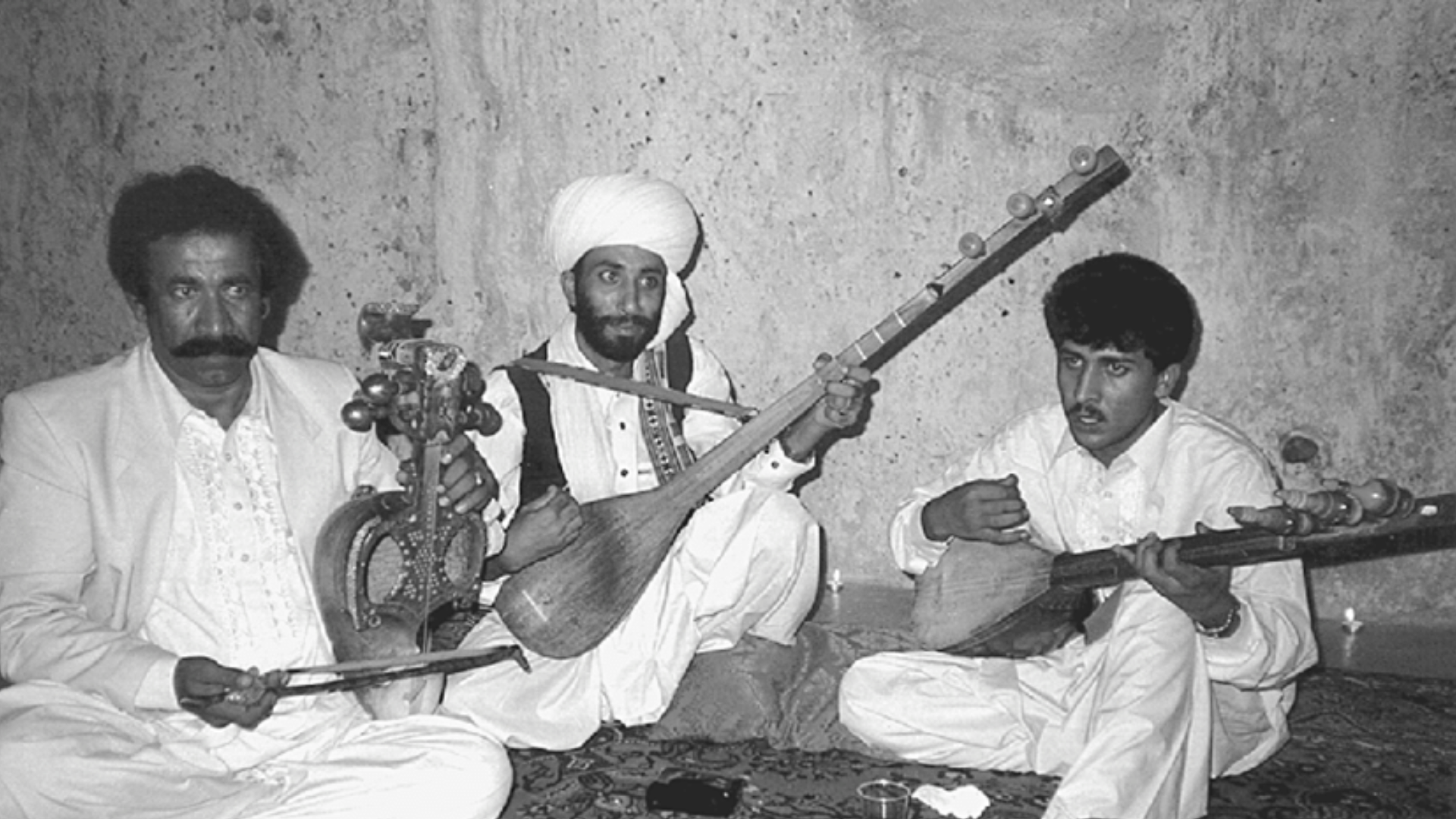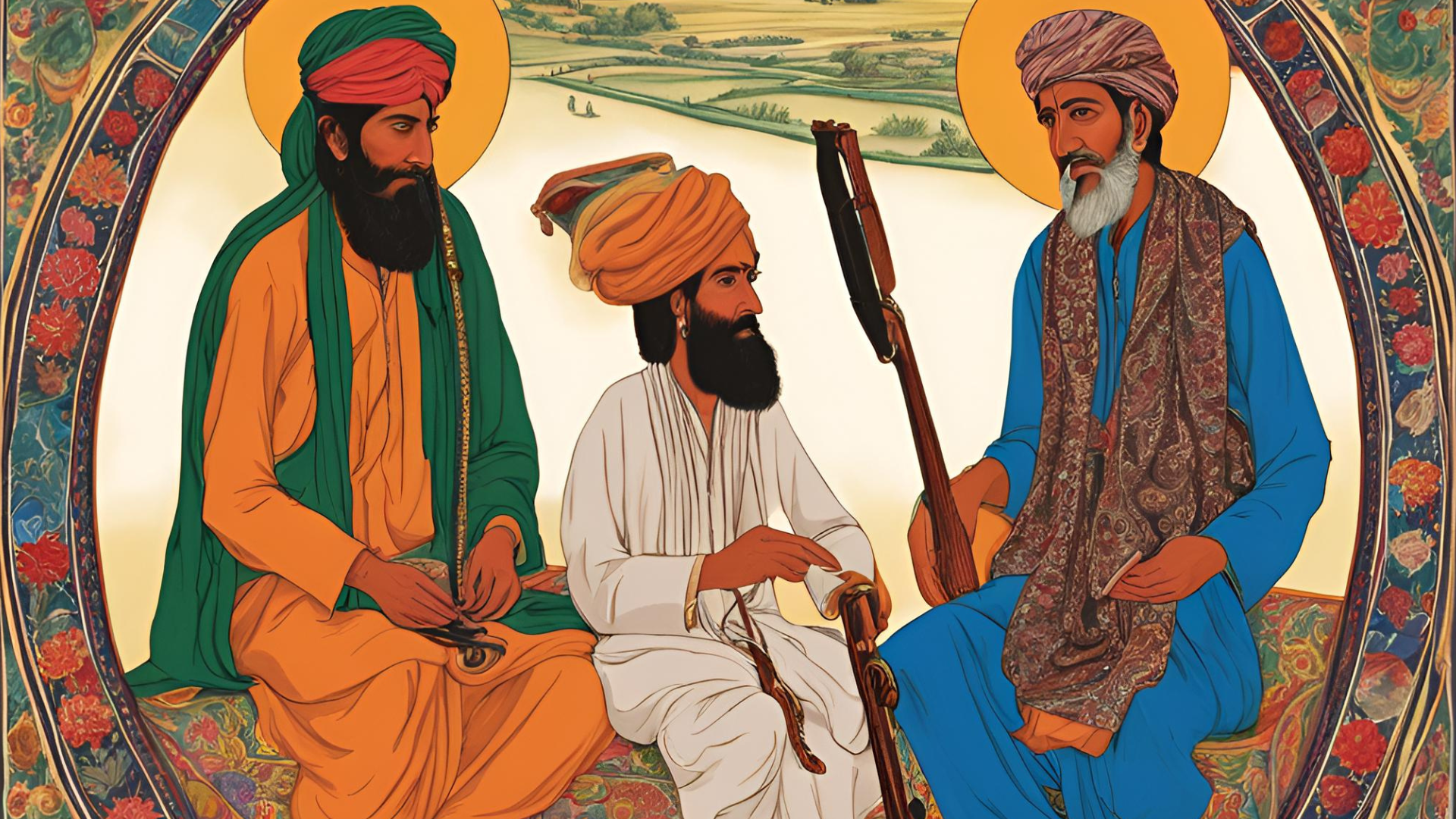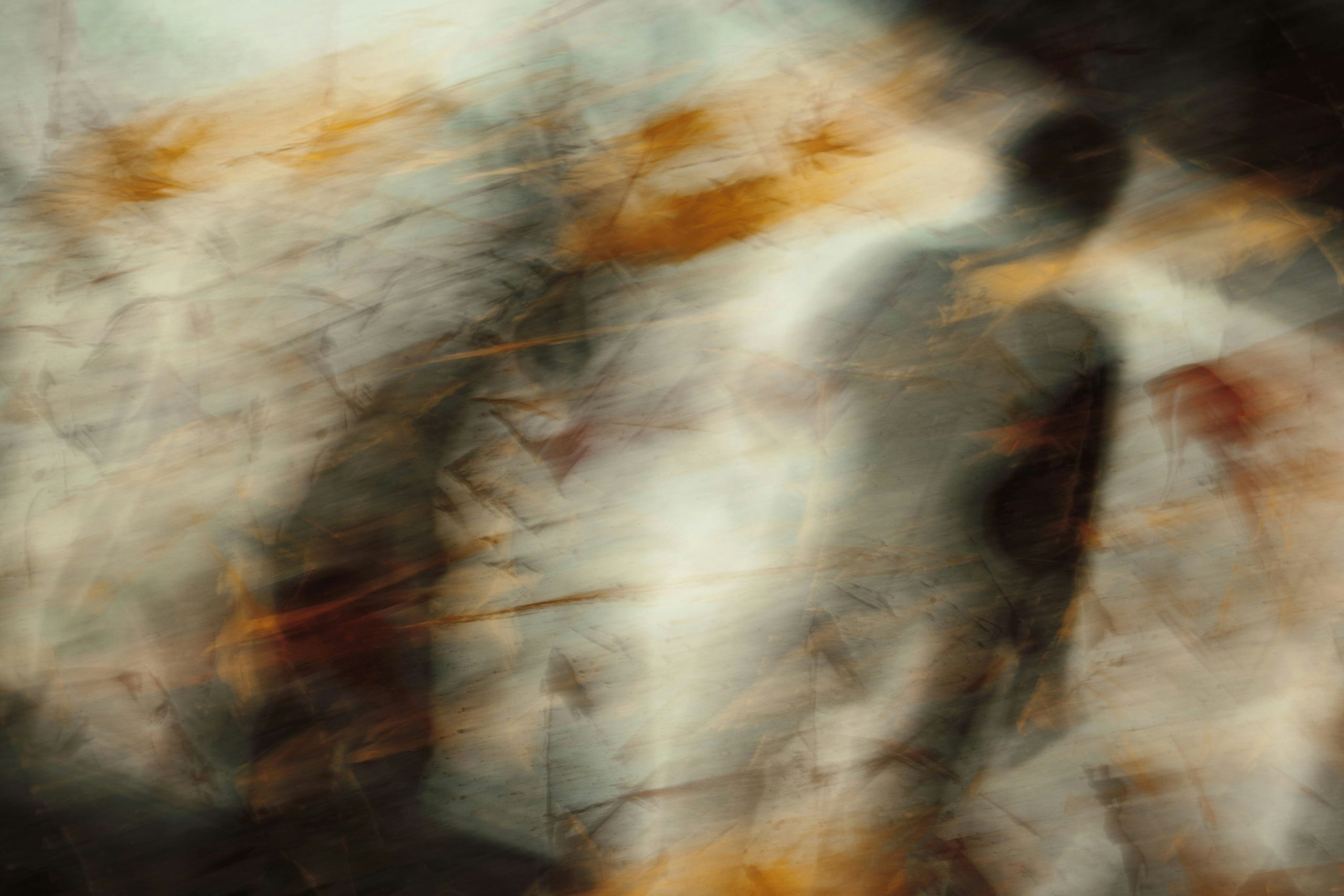
Music and Songs
Final Part
Author: Aziz Dadiar
In this article, the author discusses the evolution of Baluchi literature and music in Western Baluchistan and talks about how it is done in contemporary times. In addition, the role of great masters of song and music in the advancement of Baluchi language, literature and music is discussed. This article is divided into four parts, the fourth and the final part of which is published below.
In Sarbaz and Cheraghan, the two cousins, Gholam Ghader, the master of the instrument and Jan Mohammad with his expressive voice started to compete with the two singers from Dashtiyari. The competition between the vocalists created a new and more pleasant note for each of the classical ballads.
According to the classical Baluch poet Ibrahim: When Mir Brahim Radmardan would come face to face with his musical instrument, his status would rise to equivalent of Sardar (the tribal chieftain).
These seven stars in our art history were able to connect the deep national sentiments among the Baluchi people and succeeded in moving the emotions of the masses thanks to their poetry, music and songs.
Thanks to the competition among these masters, they were able to draw out the poems hidden in the chest of our forefathers and complete their task. Baluchi people in return showed their gratitude and paid with gold for what they were receiving.
In every occasion, and under any pretext, in circumcision ceremonies, weddings and gatherings, in every city and town, the emotions of the public was moving with the movement of musicians and their poems.
The fascination of people with this rivalry, the people who for years have been deprived of their own music and literature, was the outcome of the competition between the artists. The Baluch public showed their gratitude and support and cheered the artists through financial contributions.
When there was no gold left, the public would at times dedicate a palm tree, a camel or even their wrist watch to the artists.
In such a large market of listeners, our artists started to see themselves as influencers and that their influence came with responsibility. So, Hoot Kamalan in all his upcoming gatherings sang ballads of Hani and Morid, Balach and Duda, Shahdad along with new composition for DadShah, Gholam Ghader with such a historical zeal that would win the hearts of the listeners.
On the other hand, the competition was held by two great musicians, Ostad Durjan and Pahlavan Arzoo, each with a new phonetic and a distinguished posture. On one hand, Durjan, with a new note from a poem about the Rinds and on the other hand, Arzoo was flanked by a poem of “Chaker and Aali”.


